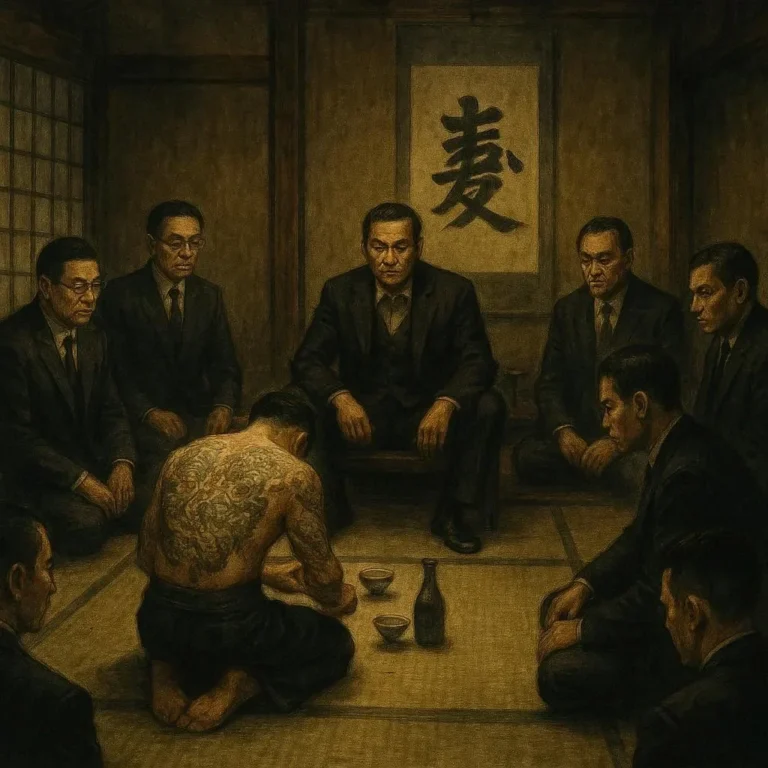514 views Yakuza Membership Decline: Understanding the Downfall of Japan’s Once-Feared Criminal Syndicates
The Yakuza, Japan’s iconic organized crime syndicates, have long been a subject of fascination and fear. For decades, they operated with a level of impunity, exerting control over various aspects of Japanese society, from the criminal underworld to legitimate businesses. However, in recent years, the Yakuza has experienced a significant decline in membership, prompting questions about the future of this once-powerful organization. This blog post delves into the factors contributing to the decline in Yakuza membership and explores what this shift might mean for Japan’s criminal landscape.
The Yakuza: A Brief History
Before discussing the decline, it’s essential to understand the origins and structure of the Yakuza. The Yakuza traces its roots back to the 17th century, emerging from groups of outcasts and samurai. Over time, these groups coalesced into organized crime syndicates, with the Yamaguchi-gumi becoming the largest and most powerful faction. The Yakuza traditionally operated under a strict code of honor, known as \’giri\’ and \’ninjo\’, which emphasized loyalty and discipline among members.
The Yakuza’s influence extended far beyond the criminal underworld. They were involved in construction, real estate, and even entertainment industries. Their presence was often tolerated, and in some cases, even romanticized, due to their adherence to a code of conduct that set them apart from other criminal organizations.
The Decline in Yakuza Membership
In recent years, the Yakuza has seen a steady decline in membership. According to the National Police Agency of Japan, the number of Yakuza members has been decreasing steadily since the 1990s. In 2020, the Yakuza membership was estimated to be around 30,000, down from a peak of approximately 80,000 in the late 1960s. This significant drop has raised questions about the future viability of the organization.
Factors Contributing to the Decline
Several factors have contributed to the decline in Yakuza membership, including changes in Japan’s economic landscape, increased legal scrutiny, and shifts in societal attitudes toward organized crime.
1. Japan’s Economic Downturn
One of the primary reasons for the decline in Yakuza membership is Japan’s economic downturn, particularly during the 1990s and early 2000s. The collapse of the `bubble economy` led to widespread financial instability, affecting not only legitimate businesses but also the Yakuza’s revenue streams. The syndicates, which had heavily invested in real estate and construction, saw their profits plummet as asset values dropped.
The economic downturn forced the Yakuza to diversify their operations, moving into sectors like extortion, loan-sharking, and drug trafficking. However, these activities were riskier and attracted increased attention from law enforcement, leading to higher levels of scrutiny and persecution.
2. Increased Legal Scrutiny
The Japanese government has implemented a series of tough anti-crime laws aimed at dismantling the Yakuza’s power structure. The Anti-Yakuza Law, enacted in 1992, prohibits businesses from dealing with known Yakuza members and imposes harsh penalties on companies that engage with the syndicates. This law has made it increasingly difficult for the Yakuza to operate legitimized businesses, further squeezing their revenue streams.
Law enforcement agencies have also stepped up their efforts to crack down on Yakuza activities. Police have targeted high-ranking members, disrupting the leadership structure and creating internal instability within the organizations. The increased legal pressure has made it more challenging for the Yakuza to recruit new members and maintain their influence.
3. Changing Social Attitudes
Societal attitudes toward the Yakuza have also shifted in recent years. While the Yakuza was once viewed with a mixture of fear and respect, younger generations have become increasingly intolerant of organized crime. The romanticized image of the Yakuza, perpetuated by films and popular culture, has given way to a more negative perception, particularly in urban areas.
This shift in public opinion has been fueled, in part, by high-profile crimes linked to the Yakuza, such as the assassination of a Nagasaki city mayor in 2007. The resulting media coverage has highlighted the violent nature of the Yakuza, eroding their public image and making it more difficult to attract new recruits.
4. The Rise of Digital Technology
The rise of digital technology has also played a role in the decline of Yakuza membership. Increased surveillance and the use of technology in law enforcement have made it easier to track and prosecute Yakuza members. Social media and online platforms have also exposed the organization’s activities to a wider audience, further tarnishing their reputation.
In addition, the digital age has opened up new avenues for criminal activities, such as cybercrime and online fraud. While these activities offer new opportunities for organized crime groups, they also require different skills and expertise than the traditional Yakuza operations. This shift has led to a generational divide within the organization, with older members struggling to adapt to the new landscape.
Challenges in Recruitment
The Yakuza has historically relied on recruitment from specific segments of Japanese society, such as the burakumin (a marginalized caste) and other outcast groups. However, the changing economic and social landscape has made it increasingly difficult for the Yakuza to attract new members from these communities.
The decline in traditional industries, such as construction and manufacturing, has reduced the pool of potential recruits. Younger individuals are more likely to pursue education and career opportunities in the formal economy, rather than joining criminal organizations. This shift has forced the Yakuza to look for recruits in new areas, such as the growing number of temporary workers and individuals affected by economic instability.
Moreover, the Yakuza’s rigid hierarchical structure and strict code of conduct have become less appealing to younger generations. The organization’s emphasis on loyalty and discipline, while Once seen as strengths, now appear outdated in a society that values individualism and flexibility.
The Rise of New Criminal Organizations
The decline of the Yakuza has created a vacuum in Japan’s criminal underworld, which has been filled by new types of criminal organizations. These groups often operate outside the traditional Yakuza structure and are more adaptable to the changing economic and technological landscape.
One such group is the `hybrid` gang, which combines elements of traditional organized crime with modern criminal activities like cybercrime and drug trafficking. These groups are often more fluid in their structure and are better equipped to exploit new opportunities in the global criminal economy.
The rise of these new organizations poses a challenge to the Yakuza’s dominance and further accelerates its decline. As the Yakuza struggles to adapt to the changing environment, it risks being supplanted by more nimble and innovative criminal groups.
The Impact on Japanese Society
The decline of the Yakuza has significant implications for Japanese society. While the reduction in organized crime activity may be seen as a positive development, it also raises concerns about the potential rise of new, more dangerous criminal organizations.
The Yakuza’s traditional role in providing ‘protection’ services and mediating disputes in certain communities has diminished, leading to increased competition and conflict among smaller criminal groups. This fragmentation of the criminal landscape has the potential to lead to more violent conflicts and further destabilization of affected communities.
Moreover, the decline of the Yakuza has left a void in certain sectors of the economy, particularly in industries like construction and real estate. While the reduction in Yakuza involvement in these sectors may improve transparency and reduce corruption, it also disrupts established business practices and relationships that have developed over decades.
Conclusion
The decline in Yakuza membership is a complex phenomenon driven by a combination of economic, legal, social, and technological factors. As Japan’s once-feared criminal syndicates struggle to maintain their relevance in a changing world, new challenges and opportunities emerge for both law enforcement and the wider society.
While the decline of the Yakuza may signal a shift away from traditional organized crime, it also highlights the need for continued vigilance against new forms of criminal activity. Understanding the factors contributing to the Yakuza’s decline is essential for addressing the broader issues of crime and corruption in Japan and ensuring a safer, more stable future for its citizens.
As the Yakuza fades into the shadows, it remains to be seen what the future holds for Japan’s criminal underworld. One thing is certain, however: the decline of the Yakuza marks the end of an era and the beginning of a new chapter in Japan’s ongoing battle against organized crime.






